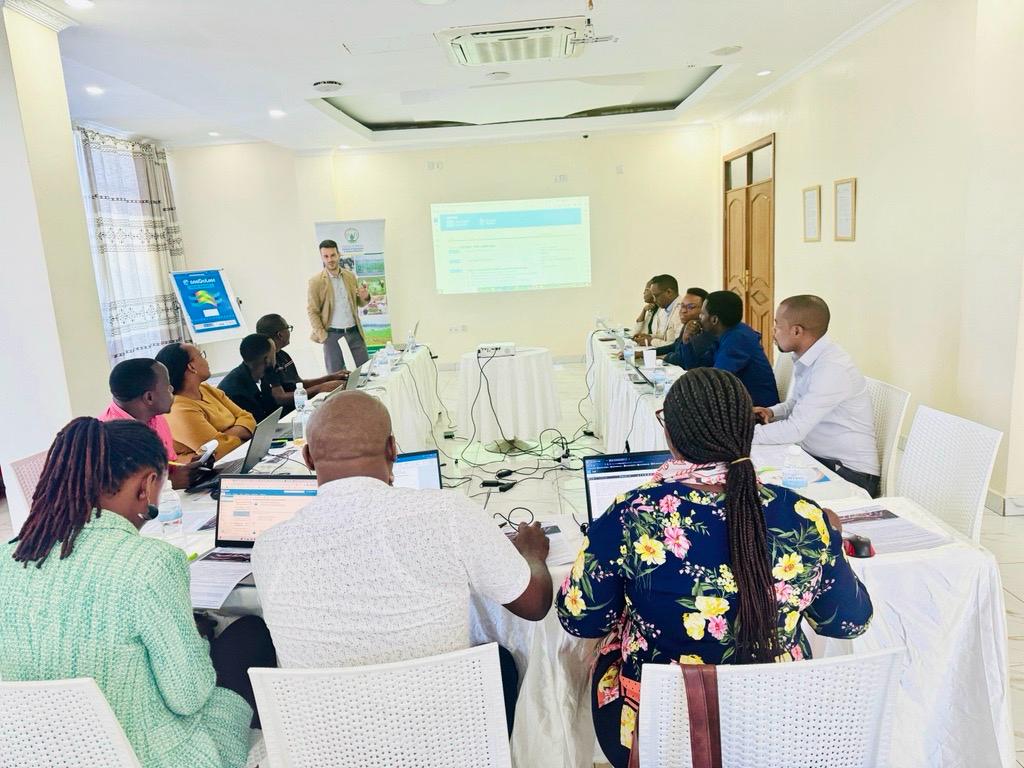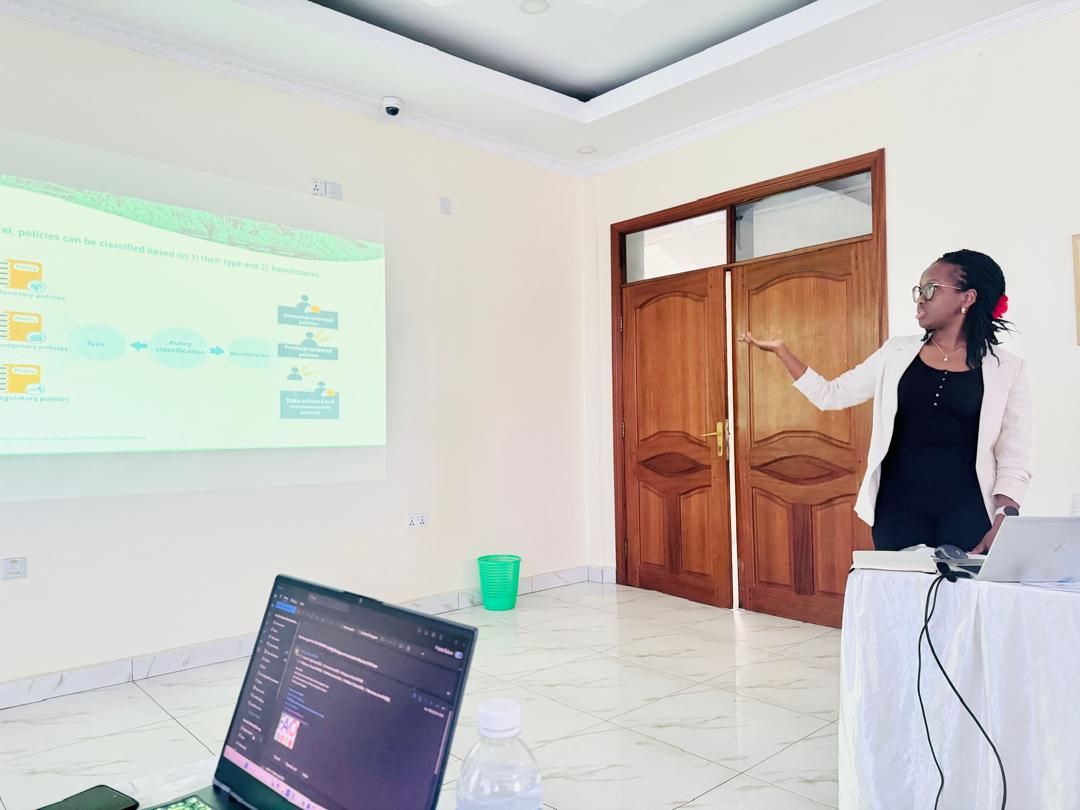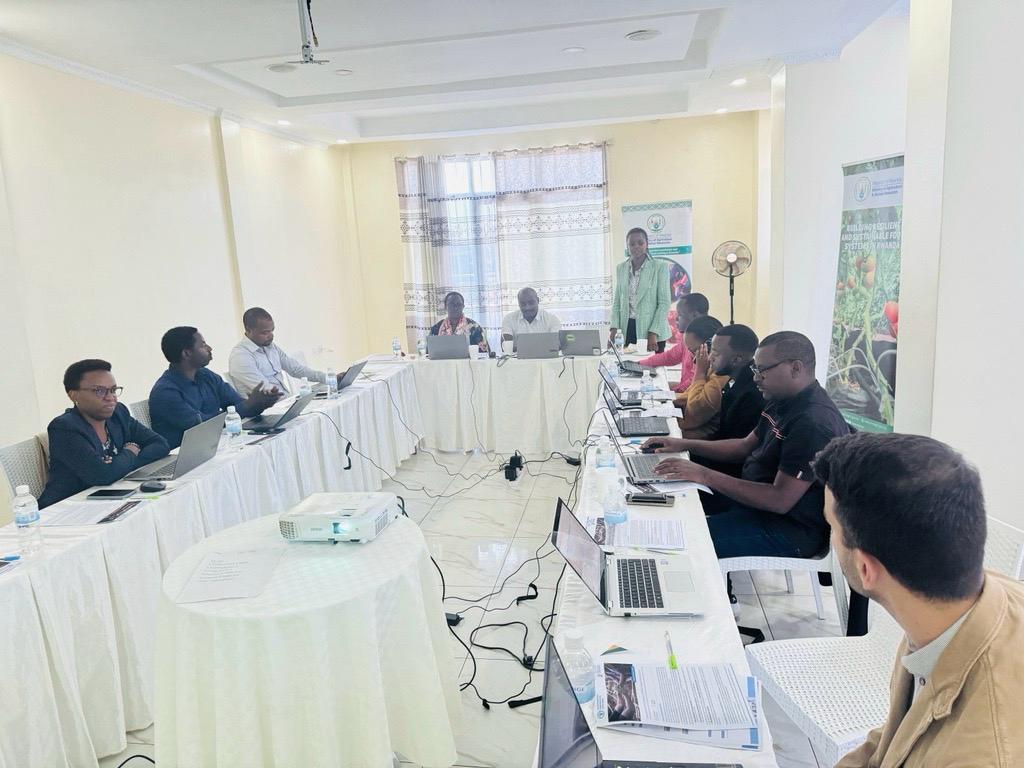MAFAP team delivers capacity-development training to civil servants in Rwanda
Over a dozen staff from various ministries and institutions benefitted from in-person training on MAFAP’s policy-monitoring tools as part of a three-day upskilling workshop.

The Monitoring and Analysing Food and Agricultural Policies (MAFAP) team delivered capacity-building training to over a dozen civil servants from Rwanda’s Ministry of Agriculture and Animal Resources (MINAGRI), Ministry of Trade and Commerce (MINICOM), and the National Agricultural Export Development Board (NEAB) on policy monitoring and data analysis.
The in-person training, which took place in the Northwest city of Musanze, Rwanda and span three days and took place in the form of an in-person workshop, was opened by Alice Mukamugema, Director-General for Value Chain Management and Trade at MINAGRI. It is fruit of a letter of agreement between FAO and MINAGRI on upskilling staff on policy monitoring.
MAFAP Economists Carine Tuyishime (bottom left photo), Clarisse Mukaneza and Davide Del Prete (pictured below) presented the MAFAP methodologies behind the analyses on public expenditure on food and agriculture and price incentives, as well as the data requirements, and data management principles to carry out such an analysis.
The thirteen officials who attended the capacity-development workshop also learned about the importance of policy monitoring and how to compute and classify data correctly and how to interpret the indicators resulting from analysis.

The FAO–MINAGRI workshop also served as an opportunity to validate new data for upcoming policy-monitoring analyses. Institutional data on prices for 6 commodities were checked and validated with officials for coffee, Irish potatoes, milk, rice, tea, and wheat. The data will help the MAFAP team to determine whether farmers benefitted or not from the policies in place during 2015–2021, in terms of the prices they received at farm gate.
Similarly, the MAFAP team and the ministry staff managed to check and validate institutional data on public spending on food and agriculture between 2021–2023. This, together with the data from price incentives, will give the team the most up-to-date numbers to carry out a new policy monitoring review (PMR) report, which is due later in the year.
 |  |
Contact
Davide Del Prete MAFAP Focal Point for Rwanda [email protected]
